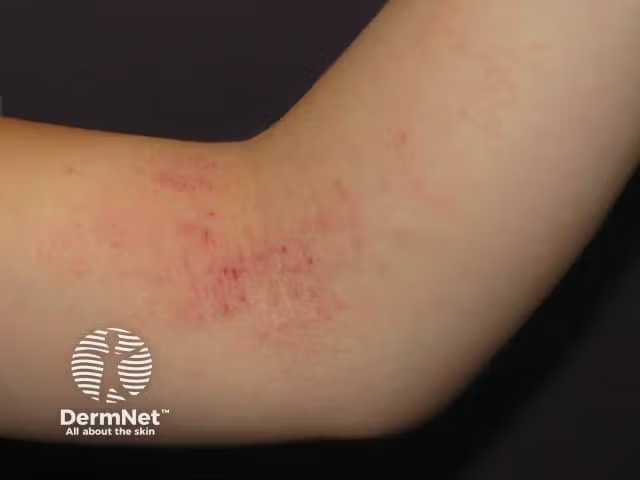- Case-Based Roundtable
- General Dermatology
- Eczema
- Chronic Hand Eczema
- Alopecia
- Aesthetics
- Vitiligo
- COVID-19
- Actinic Keratosis
- Precision Medicine and Biologics
- Rare Disease
- Wound Care
- Rosacea
- Psoriasis
- Psoriatic Arthritis
- Atopic Dermatitis
- Melasma
- NP and PA
- Skin Cancer
- Hidradenitis Suppurativa
- Drug Watch
- Pigmentary Disorders
- Acne
- Pediatric Dermatology
- Practice Management
- Prurigo Nodularis
- Buy-and-Bill
Article
How to Improve AD Patient Education
Author(s):
A study published in Pediatric Dermatology sought to investigate whether an educational handbook could improve atopic dermatitis (AD) symptoms, caregiver confidence in AD management skills, and AD-related quality-of-life.
A group of researchers aimed to find out if an educational handbook on atopic dermatitis (AD) given to caregivers of pediatric patients with AD aged 1 month to 16 years could improve AD symptoms, management skills, and quality-of-life (QoL).1
In the study published in Pediatric Dermatology, caregivers were randomly assigned to the intervention arm (handbook and AD management) or the control arm (management alone) and then completed a self-reported outcome questionnaire before a clinical visit for AD at a 3-month follow-up.
In total, 175 caregivers finished the questionnaire at baseline and follow-up. The AD symptoms, which were measured by Patient-Oriented Eczema Measure (POEM), did show improvement in both the intervention and control arm. Also, the decrease in the mean POEM score in the intervention arm (−4.4, 95% CI [−5.8, −3.0]) was slightly higher than that in the control arm (−3.4, 95% CI [−4.8, −2.03]; P = .343). Change in QoL did not differ between study arms.
Caregivers who attended a new patient visit for AD had a higher mean confidence score (measured from 0 to 100) in the intervention arm (67 [95% CI {60, 74}] to 83 [95% CI {77, 88}]) vs the control arm (74 [95% CI {65, 82}] to 75 [95% CI {67, 83}]; P = .012). The majority of caregivers rated the handbook as helpful in managing the child's AD.
“Despite an adequate sample size, the handbook did not improve AD symptoms more than standard management alone,” the authors concluded. “The handbook improved confidence in management skills for families attending new patient visits for AD.”
Reference:
1. LeBovidge JS, Timmons K, Delano S, et al. Improving patient education for atopic dermatitis: A randomized controlled trial of a caregiver handbook. Pediatric Dermatology. 2021;38(2):396-404. doi:10.1111/pde.14519






